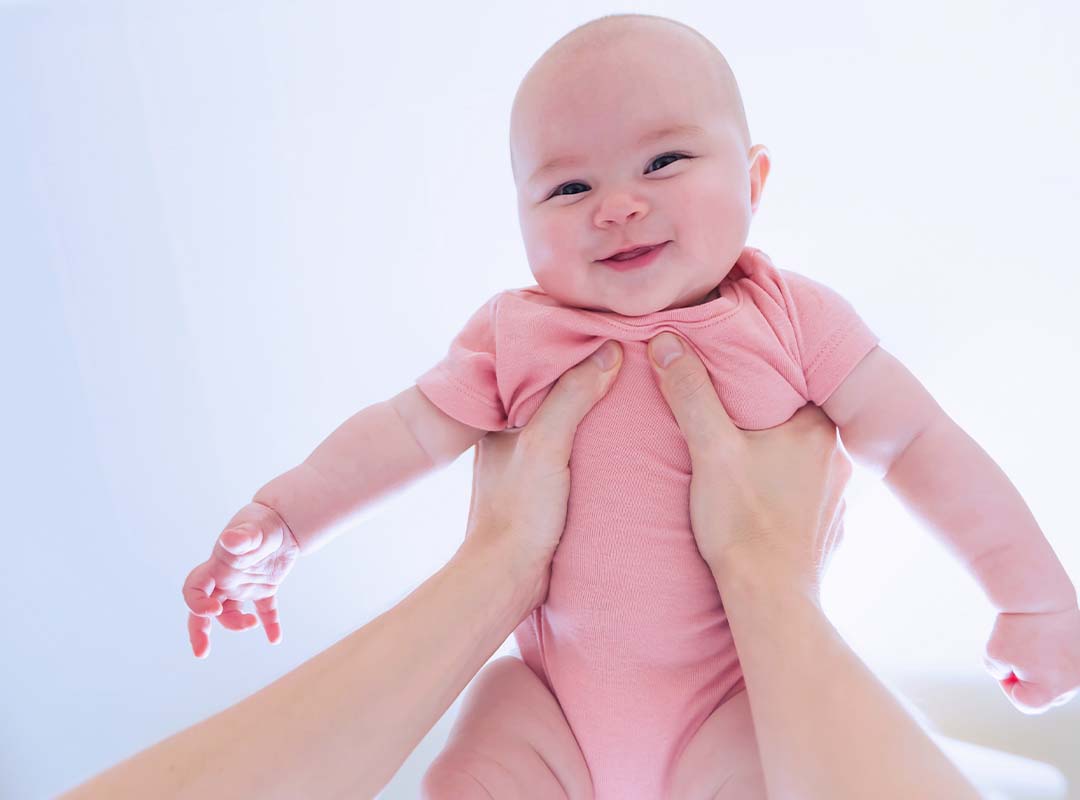
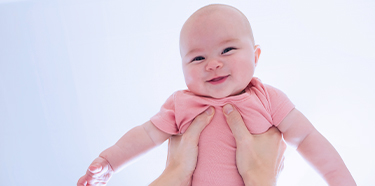
GeneSeeker, Genetic Compatibility Test is a test that allows us to identify in future parents the presence of disease-causing genes that could be transmitted to their children.
The GeneSeeker Genetic Compatibility Test is for everyone, including healthy adults.
GeneSeeker is a carrier screening test that makes use of the latest DNA sequencing technology to analyse patients for possible mutation-causing diseases. Simultaneous analysis of hundreds of genes helps identify couples who are at high risk of having an affected child.
Within our DNA, some genes contain disease-causing mutations, however in most cases these do not cause a disease. This is because we each have two copies of every gene (with the exception of genes on the X-chromosome in men). The GeneSeeker test looks at variations in the DNA which are ‘recessive’, meaning that they only cause a disease when both copies of the gene have a mutation. If you have a recessive mutation in one copy of a gene, stopping it from working properly, the other (normal) copy is sufficient to prevent the disease. However, if your partner carries a mutation in the same gene, then there is a risk that a future child could receive a defective copy from each of you, leaving them with no functioning copies of the gene, and causing them to develop an inherited disorder.
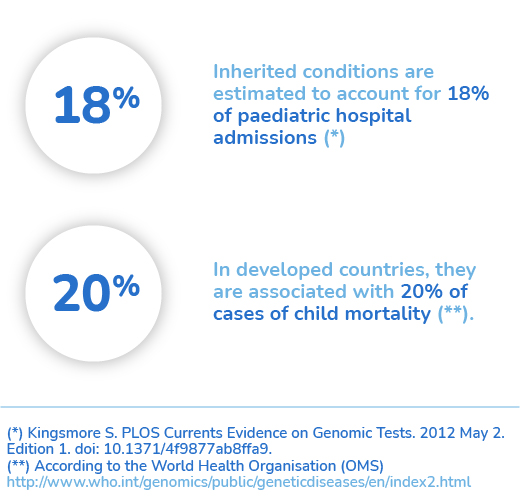
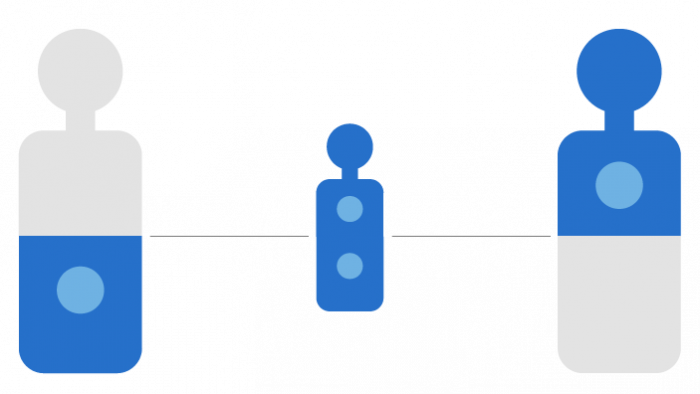

Genetic diseases cannot be cured, but they can be prevented with GeneSeeker. Every year, healthy carriers of recessive gene mutations become parents to discover their child is affected by a life-altering health condition. This happens due to an inherited genetic disease of which neither parent was aware. When both parents carry a copy of the same genetic mutation, there is a 1 in 4 chance that their child will be affected by the disease even if both parents are unaffected.
At IVI, our main objective at IVI is for our patients to have healthy children. By using GeneSeeker, we can analyse 256 genes for 516 different genetic conditions and reduce the risk of a child being born with a serious genetic disease from 1 in 100 to 1 in 30,000.
RESULTS
90% of patients who undergo an assisted reproduction treatment at IVI become pregnant.
CARE
97% of our patients recommend IVI.
IVI provides personalised care and support during all stages of treatment.
TECHNOLOGY
IVI is a pioneer in the latest assisted reproduction technology in order to present the best results.
PRICE-QUALITY
We are not the most expensive choice. We offer the most treatment options in order to achieve the best results.
We all have alterations in our genes, and with the GeneSeeker we can find out if these alterations could lead to our children having a genetic disease. The test is recommended in the following cases.
The test is carried out on DNA obtained from blood samples from the father and the mother. The results come through in a month, and we can then find out the probability of your child suffering from a genetic disease.
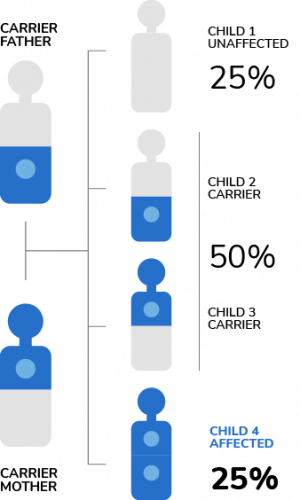

We can all be healthy carriers of genetic disorders without presenting any features or symptoms. Being a healthy carrier means that out of the two copies of a specific gene, only one has a disease-causing alteration. This is known as a mutation. While one copy is normal, the gene is able to function properly with no implications for the carrier.
However, in cases where two healthy carriers of the same genetic mutation have a child, there is a 1 in 4 chance that their child will be affected by that genetic disease. This means that with each pregnancy, there is a 25% chance that the child will be born with a life-altering health condition.
If you and your partner are both carriers of the same mutation, it is possible to avoid passing down the genetic condition to your child by undergoing IVF with a genetic screening test which can detect whether an embryo is affected by a genetic mutation. Only unaffected embryos will be transferred.
More than 80% of children with a genetic disorder are born to parents with no family history or symptoms of the disorder
When a mutation is detected in the same gene for both members of a couple, there is an increased risk of them having a child affected by a genetic disorder.
In such cases, the options for conceiving a child who is not affected by the inherited disease include:
In vitro fertilisation treatment with Pre-implantation Genetic Testing for Monogenic disorders (PGT-M).
For the majority of inherited conditions, Juno Genetics can offer tests that reveal which embryos have inherited mutations from the parents. Only embryos predicted to be unaffected are transferred to the mother’s uterus.
Gamete donation
Couples can consider gamete donation from a donor who does not carry a mutation in the same gene as the male or female partner.
Genetic tests, such as GeneSeeker, analyze genes, which are chemical instructions encoded in our DNA. The genes are the blueprints for building our bodies and maintaining the health of our cells, tissues and organs. Genetic testing looks for variations in your genes (mutations) that can cause genes to stop working properly, potentially lead to disease. There are various reasons why you or your healthcare provider might consider genetic testing, such as assessing the risk of you and your partner having a child affected by an inherited disorder, or to determine the cause of an inherited condition that runs in your family.
It has been estimated that everyone carriers 3‐5 genetic mutations but in most cases these do not cause a disease. This is because we each have two copies of every gene (with the exception of genes on the X-chromosome in men). The GeneSeeker test looks at variations in the DNA which are ‘recessive’, meaning that they only cause a disease when both copies of the gene have a mutation. If you have a recessive mutation in one copy of a gene, stopping it from working properly, the other (normal) copy is sufficient to prevent the disease. However, if your partner carries a mutation in the same gene, then there is a risk that a future child could receive a defective copy from each of you, leaving them with no functioning copies of the gene, and causing them to develop an inherited disorder.
Most carriers of recessive gene mutations have no family history of inherited disease. Such disorders can remain hidden in families for hundreds of years before suddenly and unexpectedly reappearing. We are all carriers of recessive mutations, but we do not realise it because we have two copies of each of our genes (with the exception of X-chromosome genes in males). Having one defective copy is not sufficient to cause disease. To have a recessive inherited disease both copies of the gene must be knocked out by mutation. GeneSeeker can look for hidden recessive mutations carried by you and your partner and identify whether you have any in the same gene. In such cases, there is a risk that you could each pass a defective copy of the gene to a future child, meaning that they would have no functional copy of the gene and would develop an inherited disorder.
Regardless of whether you are planning to get pregnant naturally or whether you intend to use assisted reproductive treatments (e.g. IVF), GeneSeeker can help to identify whether you and your partner have an increased risk of having a child affected by an inherited disorder. If you are both found to carry mutations in the same gene, there is a risk that a future child could inherit a defective copy of the gene from each of you, leading to the child being affected. If you find you are at increased risk of producing an affected child, there are strategies that can help avoid an affected pregnancy and/or birth, such as preimplantation genetic testing or prenatal testing.
We are all carriers of recessive genetic mutations and it is likely your baby will be too. However, being a carrier of a recessive mutation does not mean that the baby will be affected by an inherited disorder. We have two copies of each of our genes (with the exception of genes on the X-chromosome for men). If you have a recessive mutation in one copy of a gene, stopping it from working properly, the other (normal) copy is sufficient to prevent the disease.
GeneSeeker results are typically ready within 2 weeks of Juno Genetics receiving your blood sample.
In the vast majority of cases, the answer is no. We have two copies of each of our genes (with the exception of genes on the X-chromosome for men). The GeneSeeker test looks at variations in the DNA which are ‘recessive’, meaning that they only cause a disease when both copies of the gene have a mutation. If you have a recessive mutation in one copy of a gene, stopping it from working properly, the other (normal) copy is sufficient to prevent the disease. However, if your partner carries a mutation in the same gene, then there is a risk that a future child could receive a defective copy from each of you, leaving them with no functioning copies of the gene, and causing them to develop an inherited disorder.